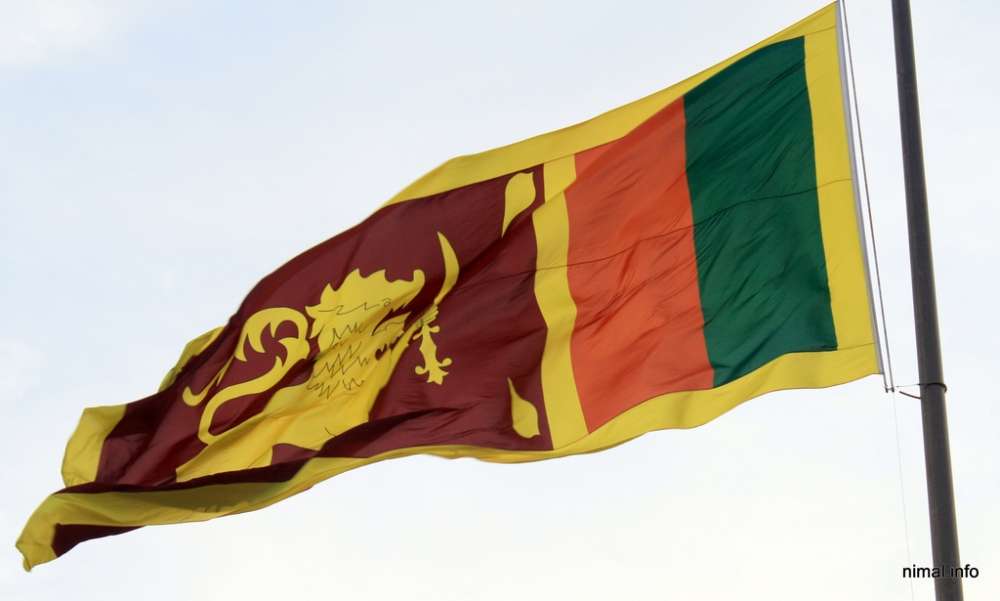What German Diplomacy Owes Sri Lanka

Last week, German Foreign Minister Frank-Walter Steinmeier visited Sri Lanka. It was the first visit made by a German foreign minister in over 10 years. During his visit, Steinmeier promised to support Sri Lanka in accounting for the grave human rights violations incurred during the civil war, but he left open the shape and form that this assistance would take. The German government, in addition to Sri Lanka’s other international partners, could have done more during and immediately after the end of the war in the spring of 2009. In light of its past failures, German diplomacy owes it to the victims of the Sri Lankan civil war to make a strong push for the establishment of a hybrid tribunal with a strong international element during the current negotiations in Geneva.
The Sri Lankan civil war, which ended after 26 bloody years with a military victory by the government against the rebels of the Liberation Tigers of Tamil Eelam (LTTE), caused many casualties. According to United Nations experts, up to 40,000 people lost their lives in the last weeks of the war alone, as around 300,000 Tamil civilians were caught on a small strip of coast in the Northeast of Sri Lanka between a few thousand rebel fighters and the advancing divisions of the Sri Lankan army.
Less than two weeks after the last shot had been fired in Sri Lanka, the European Union requested a special session of the UN Human Rights Council. Instead of criticizing both parties for their behavior during the war and calling for accountability, the council praised the government for its victory against the LTTE. Moreover, the European member states that had requested the special session – a move led by Germany – failed to submit their draft resolution along with the request, having lacked sufficient votes in the council. The resolution would have criticized the conduct of the parties involved in the war. Meanwhile, Sri Lanka submitted its own draft, which was unsurprisingly lenient on the Sri Lankan government; the resolution was subsequently voted on and passed.
Since then, there have been numerous expert reports. In 2012, under the leadership of the United States, the Human Rights Council changed its attitude towards Sri Lanka by asking its government to ensure accountability and reconciliation. Last year, the council asked UN High Commissioner for Human Rights Zeid Ra’ad al-Hussein to investigate the alleged human rights violations in Sri Lanka.
On September 16, 2015, Zeid presented a 250-page report that described the indiscriminate shelling, torture, sexual abuse, recruitment of children and other grave crimes committed by both sides. Zeid called for the creation of a hybrid tribunal to prosecute those responsible for these violations. The tribunal would consist of international judges, prosecutors and lawyers as well as their Sri Lankan counterparts.
The new Sri Lankan government headed by Prime Minister Ranil Wickremesinghe welcomed the UN report and committed itself to creating a truth and reconciliation commission with the assistance of South Africa. The government accepted the “participation” of “Commonwealth and other foreign lawyers” in a draft resolution negotiated by the US, the United Kingdom, Mauritius, Montenegro and Macedonia, but Wickremesinghe later said that Sri Lanka’s constitution did not allow foreign judges to “operate” in the country. They could only provide assistance during the process, Wickremesinghe claimed.
Assistance is not enough, as High Commissioner Zeid explained during his presentation of the investigative report. Sri Lanka’s judicial system is not prepared for cases of such a grave nature, ones that could lead to sentences for war crimes and crimes against humanity. For a start, these crimes are not even a part of the Sri Lankan penal code. In addition, after decades of delayed and obstructed trials, trust in the Sri Lankan justice system is dismally low among victims and their families.
Germany currently serves as the president of the Human Rights Council, where member states discuss the recommendations of the high commissioner. Unburdened by a colonial past and as the third most important market for Sri Lanka, Germany has long enjoyed good relations with the island nation.
The German government should push for a hybrid tribunal with a genuinely international component. It should make substantial contributions to the special fund necessary for such a tribunal. A combination of international and Sri Lankan elements, jointly owned by the government and the UN, is the best way to gain credibility with the family of the victims and to at least have a chance of being accepted by the Singhalese-majority society.
Previous attempts at transitional justice after civil wars demonstrate that the participation of the government and the majority society are crucial to the implementation of judgments made by hybrid tribunals and to their integration into a long-term process of reconciliation. The Singhalese society views the inclusion of international judges as interference in the sovereignty of the country. A special role for Commonwealth lawyers, with whom Sri Lankans are somewhat familiar, may help to dispel some of these concerns.
The German government needs to continue the negotiations. The Sri Lankan president has already announced plans for a new constitution that will “strengthen freedom, democracy and human rights” in the country. The new constitution should allow for international lawyers to operate in a special hybrid tribunal.
Given the failures of international and German diplomacy in the spring of 2009, the German government has the opportunity to make an important contribution to accountability and reconciliation in this beautiful island nation haunted by the legacy of a brutal civil war.
…
This is an updated version of an op-ed that originally appeared in Frankfurter Rundschau on September 26, 2015.







